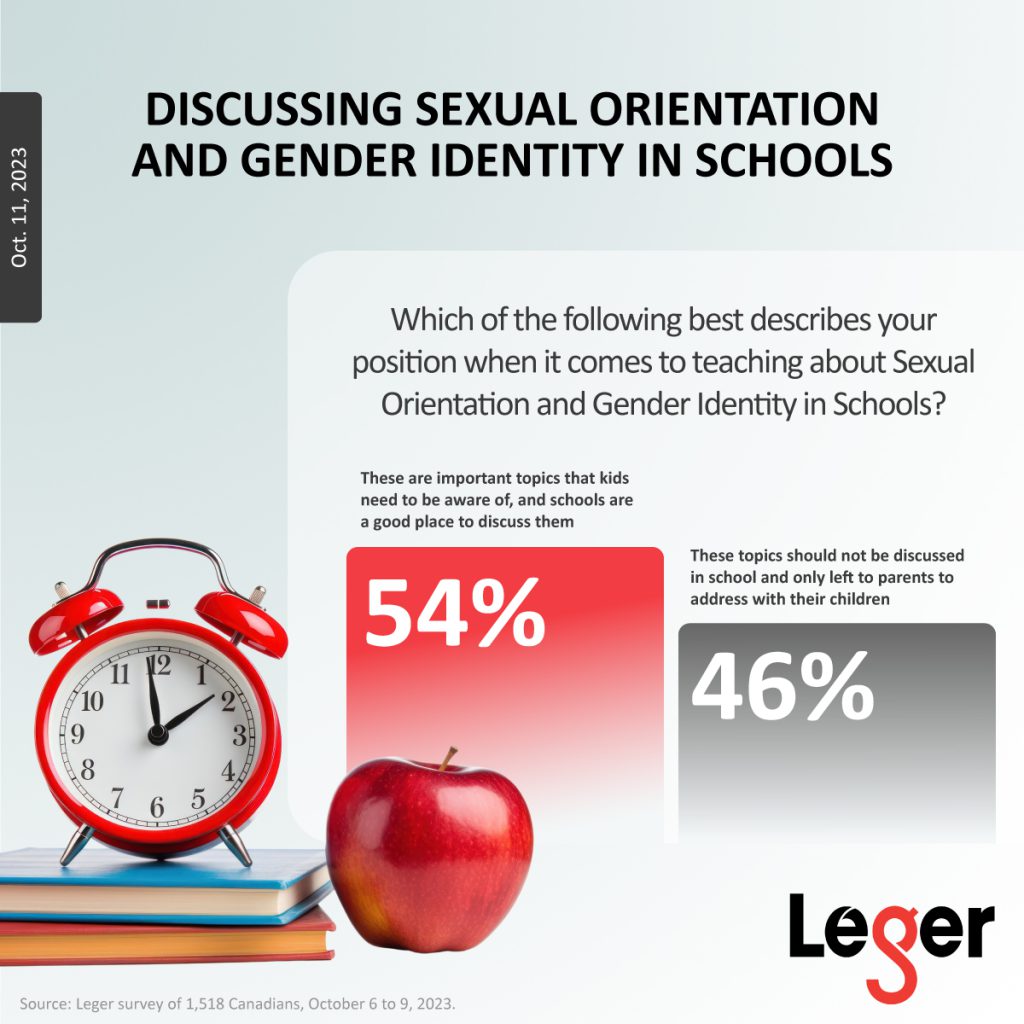Discussions about sexual orientation and gender identity in schools are currently a topic of debate in Canada, with some parents feeling that these topics have no place in schools. From October 6 to 9, 2023, we surveyed Canadians to find out about their opinions and concerns regarding discussions of sexual orientation and gender identity in Canadian schools.
Some of the key highlights of our survey about sexual orientation and gender identity in Canada include…
- 65% of Canadians are aware of the ongoing discussion around sexual orientation and gender identity in Canadian schools. Those from British Columbia (73%) and Ontario (72%), as well as parents with children under 18 years old (73%), are more likely to be familiar with the situation.
- Canadians are divided on whether sexual orientation and gender identity should be discussed in school: 54% think they are important topics to be discussed in class, and 46% think the opposite.
- 48% of Canadians think that sexual orientation should be discussed in classrooms and 42% think the same about gender identity. These two topics are not considered as appropriate for children as others, such as alcohol and drugs (82%), racism (80%), climate change (78%), and truth and reconciliation (74%).

Most Canadians believe that parents should be kept informed
- 63% of Canadians think schools should inform parents if their child expresses the desire to change gender or gender pronouns to school officials and 45% think that schools should do so even if the child does not feel safe informing their parents of their desire to change gender or pronouns.
- Half of Canadians (51%) think that schools should share materials for lessons on sexual orientation, gender identity, or any other sensitive topics with parents ahead of time. This proportion is higher among parents (58%).
- Around half of Canadians (46%) would support using the notwithstanding clause to ensure that schools inform parents if their child wishes to be identified by a different gender or pronoun. This proportion is higher among parents (59%).
- The use of the notwithstanding clause to ban discussion about sexual orientation and gender identity received less support from Canadians (37%). Parents are more likely to support using the notwithstanding clause for this purpose (47%).
Methodology
This web survey was conducted from October 6 to 9, 2023, with 1,518 Canadians 18 years of age or older, randomly recruited from LEO’s online panel.
A margin of error cannot be associated with a non-probability sample in a panel survey. For comparison, a probability sample of 1,518 respondents would have a margin of error of ±2.52%, 19 times out of 20.
